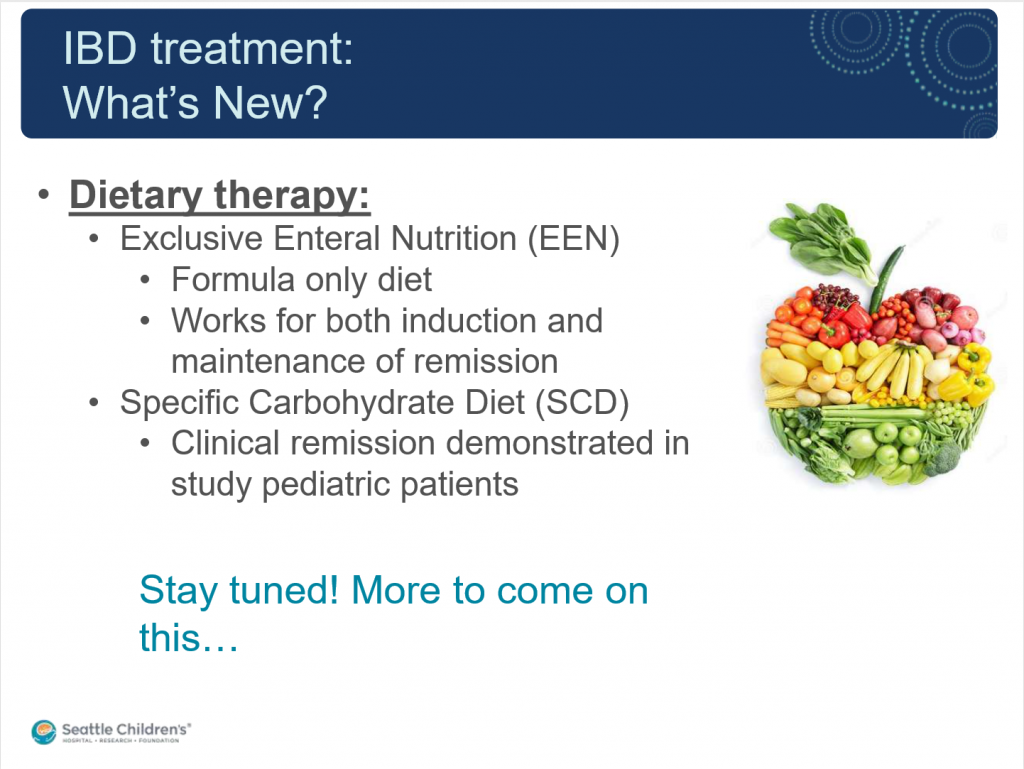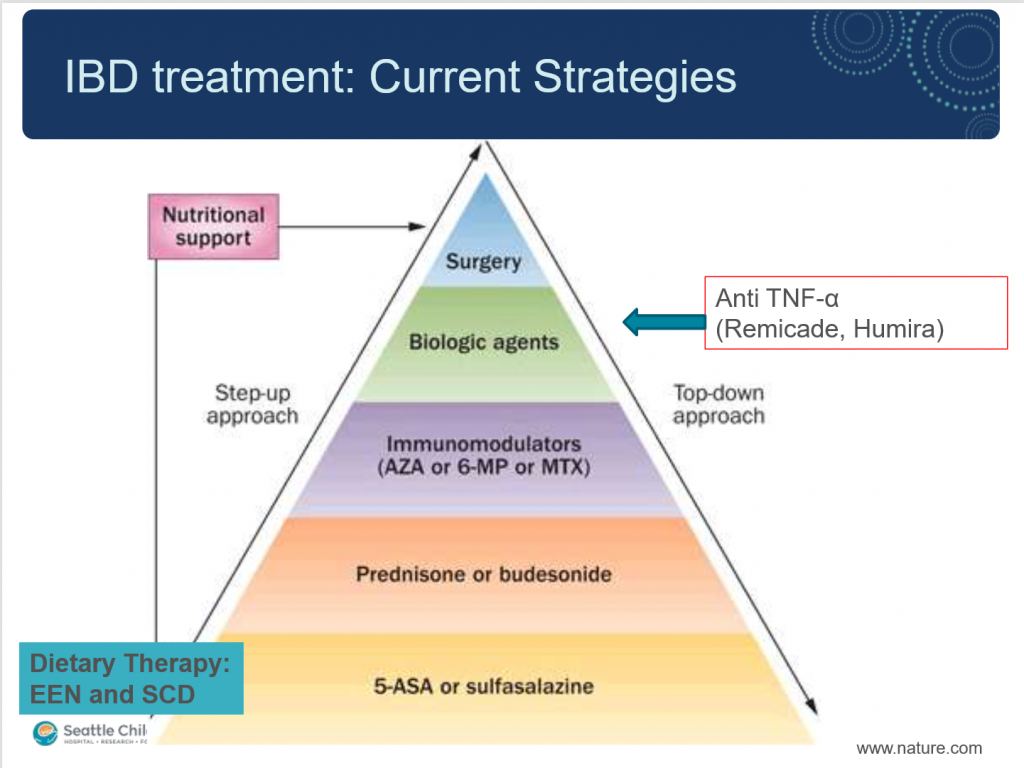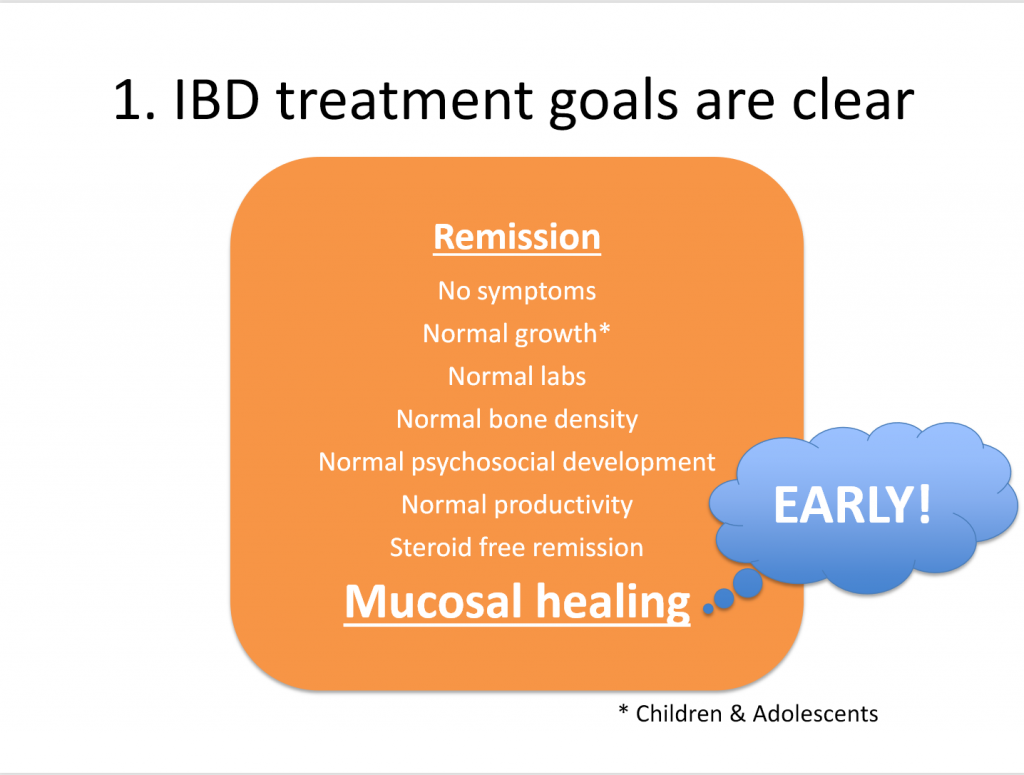
New treatments and diet therapies: IBD 2017
The 2017 Educational Conference for IBD families, organized by the Crohn’s & Colitis Foundation Northwest in partnership with Seattle Children’s Hospital, featured the latest information and guidance, and was helpful for both the newly diagnosed as well as for veteran IBD families. Leading pediatric IBD providers covered a variety of engaging topics. Even children with IBD and their siblings were encouraged to participate in a special track of fun educational activities. Lunch was provided, and generously included SCD compliant options.

The agenda covered a variety of topics (click on each topic to see the presentation slides)
- Medical Treatments – David Suskind, MD
- Nutrition & Role of Supplements – Dale Lee, MD
- Health Maintenance in IBD – Ghassan Wahbeh, MD
- Research, What’s on the Horizon – Erin Lane, MD
- Overview of Pediatric IBD- Sarah Mbonde, MBA, BSN, RN, CPN
- 504 Plans: School Accommodations – Ashley Jarrett, MSW
- Special panels allowed for interesting group discussions:
- Ask the Experts: Q&A with Panel – David Suskind, MD; Dale Lee, MD; Ashley Jarrett, MSW; Sarah Mbonde, BSN, MA; Kimberly Braly, RD; Moderated by Ghassan Wahbeh, MD
- Patient Panel: College Age Patients Share -Moderated by Teresa Wachs, RN
It is important to note that the presentation slides, while very helpful, offer only a limited view of the conference, as slides cannot cover the full breadth and depth of the discussions. There is a significant added benefit when being present and listening to the audience Q&A with the presenters. The personal interactions and group chats inside and outside the auditorium are invaluable, and provide information and insights that cannot always be shared publicly.
One example of a topic that was discussed informally is the challenge of finding adult GI doctors who will support diet therapy. When a child who uses diet therapy becomes a young adult and must transition their care, it is almost impossible to find an adult GI that is knowledgeable and supportive of diet therapies.
As Dr. Lee mentioned in response to a question from the audience, much more published research is needed in order to convince the adult GI community to incorporate diet therapy as accredited medical treatment.
From the discussion we learned that most often research and breakthrough starts at the adult gastroenterology level, and later it is adopted and applied in the pediatric GI practice. However, when it comes to nutritional therapies, pediatric GI is leading the way, and adult GI is very slow in accepting and adopting diet as medicine. Even the well-researched use of EEN is used successfully by pediatric GI doctors but hardly even mentioned by doctors as a steroid-free option for adult patients.
There are several reasons for the slow adoption of diet therapies in the adult GI community: one reason has to do with the fact that most adult patients are struggling with long-term diet compliance. Most adults prefer drugs and fast resolution of symptoms rather than commit to significant life style changes.
Another reason has to do with the doctors. Adult gastroenterologists are traditionally confined to ‘published scientific studies’. They are less likely to acknowledge the large body of proof accumulated by thousands of adult patients who use diet successfully. Also, many adults who manage IBD successfully with diet are not sharing their success with their doctors. They are busy living life to the fullest, and they avoid ‘waste of time and money’ on GI appointments, thus the impact of diet is less visible to the adult GI doctors.
 The emphasis on the importance of diet EVEN when taking medications was a new refreshing change. Up until recently, doctors used to say: “take your medications and eat whatever you want”… but the new message appeared even on the presentation slides: Diet is important in IBD, with or without medications. Diet and medications can work together.
The emphasis on the importance of diet EVEN when taking medications was a new refreshing change. Up until recently, doctors used to say: “take your medications and eat whatever you want”… but the new message appeared even on the presentation slides: Diet is important in IBD, with or without medications. Diet and medications can work together.
Doctor Wahbeh, in response to a question, talked about patients who see limited results from biologic medications, and enjoy significant benefits when they add SCD and use a combined regime of diet plus medication.
The presenters, all members of the GI team at Seattle Children’s hospital, donated their time to share their expertise with IBD families. This team is leading the way in research and development of new treatment options. They are a blessing for families in the northwest, and their work is benefiting patients worldwide!

Kathleen Waite, the education manager at CCFA NW, organized and coordinated this event (and many previous educational events in the pacific northwest). In addition to sharing the presentation slides, she shared the following updates about additional programs and services the Crohn’s & Colitis Foundation has to offer. The hard working team at CCFA NW invites you to check out these following programs:
Education & Support
- Be an Advocate: As the debates around health care continue, you can help the Crohn’s & Colitis Foundation defend and strengthen patient protections and research funding for IBD patients.
- Plan to join us Thursday, February 8 for our WA State Lobby Day in Olympia! Register now here.
- Join IBD Partners and your insights will help researchers better understand these diseases! Enroll now.
- New resources about transitioning from pediatric to adult care including “IBD University,” an online resource portal with tips and info to help you transition; “Navigating Independence,” a podcast that highlights key points about transitioning, Transition of Care Checklist, Managing IBD as a Young Adult Fact Sheet, and Parent Discussion Guide.
- JustLikeMeIBD.org site for kids and teens with IBD
- Campus Connection site about managing IBD at college
- Camp Oasis is a co-ed residential camp program with the mission is to enrich the lives of youth with Crohn’s disease and ulcerative colitis held June 24-30, 2018 at YMCA Camp Colman in Longbranch, WA. Applications for campers and volunteers will be available mid-January here!
- Power of Two provides one-on-one support to patients and their families suffering from Crohn’s disease and ulcerative colitis. Individuals participating in the program are matched to volunteers who have had similar challenges and experiences for phone or e-mail conversations.
- Support Groups: Please click here for a list of local groups that meet around the region.
Take Steps
Join us to celebrate Take Steps’ 10th Anniversary at our NEW LOCATION, Lincoln Park, on Saturday, June 9th. Take Steps is the Crohn’s & Colitis Foundation’s annual fundraising 5K run/walk that aims to inspire, empower and connect IBD patients across the country. Each year hundreds of patients from around Washington State come out with their friends and family to run, walk and raise critical funds for a cure. Register now!
spin4 crohns & colitis cures
Join us for the 3rd annual spin4 crohn’s and colitis cures indoor cycling event on December 2nd. Teams of 4 are forming for a high energy, one-day event where teams cycle together and party it up at SoulCycle in Bellevue with an amazing after party to follow in the Lincoln Square chef inspired Food Hall.
Team Challenge
Team Challenge is an endurance program that offers more than just a day-to-day training plan, professional support from coaches, mentors, and staff, hotel accommodations, race entry, and so many other perks. Team Challenge is a unique family that trains together, developing a close support network, and inspiring and supporting each other in achieving physical goals many people think they can’t do. This program provides an opportunity to become a part of the success in finding cures for Crohn’s and ulcerative colitis all while empowering each individual participant, no matter their connection to IBD.
With support from professional coaches, we train together to run or walk half-marathons in exciting destination races. We just began our 16 week training program for the brand new Surf City Half/Full Marathon in Huntington Beach, CA on Feb 4th and our final year in the Big Easy, New Orleans 10k/Half/Full marathon on March 4th. We would love to invite you to come out, meet the team, and learn more about what Team Challenge can do for you.